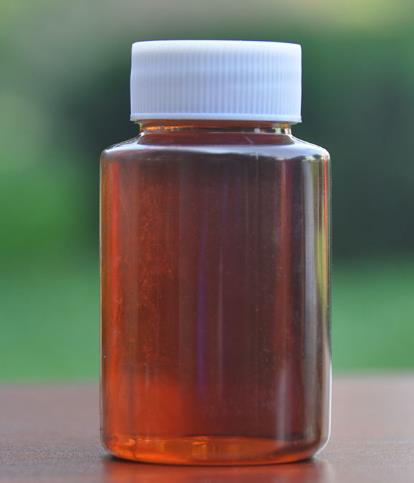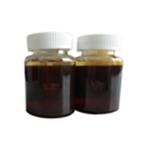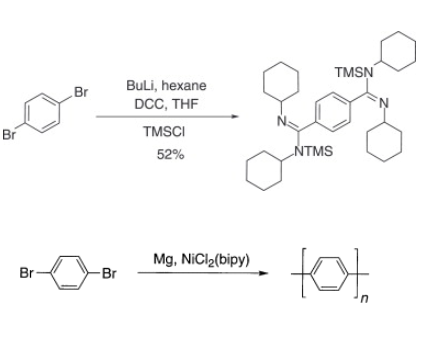Ethylmagnesium Bromide: A Versatile Reagent in Organic Synthesis
Introduction
One of the uses of Grignard reagents in the field of lipid chemistry is regiospecific analysis of triacylglycerols (TAG). In order to determine fatty acid compositions of the sn-1 and sn-2 positions, TAG were partially deacylated to diacylglycerols and monoacylglycerols (MAG) by using Grignard reagents such as methyl magnesium bromid, ethylmagnesium bromide, and allyl magnesium bromide. Ethereal solution of ethylmagnesium bromide (EtMgBr, 0.5-3 M) is the most popular reagent for this purpose.
Grignard reagents generally have to be prepared just before use. For convenience, commercially available products have been also used for the TAG analysis. However, once the bottle is opened, the reagent starts to decrease in activity. Unexpectedly low activity of the products sometimes leads to unsuccessful analysis of TAG. Main problem of the use of freshly prepared reagent is that there has been no information on the preparation procedure. This article will introduce the preparation procedure.1

Figure 1 Characteristics of Ethylmagnesium Bromide
Properties
Ethylmagnesium bromide is typically encountered as a solution in diethyl ether or tetrahydrofuran (THF), with the latter offering greater stability. This reagent is highly reactive, characterized by the presence of a magnesium-carbon bond, which imparts nucleophilic properties to the carbon atom. The general formula for ethylmagnesium bromide is C2H5MgBr, where the ethyl group (C2H5) is bonded to magnesium, which in turn is bonded to a bromine atom.
The compound exhibits a high degree of reactivity towards a variety of electrophiles, including carbonyl compounds, halides, and epoxides. This reactivity makes it an invaluable tool for forming carbon-carbon bonds in organic synthesis. Ethylmagnesium bromide solutions are typically colorless to pale yellow and can be handled safely under inert atmosphere conditions to prevent reaction with moisture or oxygen.
Procedure
Bromoethane (360 mg, 3.3 mmol) was taken into a screw-capped graduated test tube and diluted with anhydrous diethyl ether to the mark of 3 mL [1.1 M bromoethane solution]. Magnesium turnings (53.5 mg, 2.2 mmol) were taken into another screw-capped graduated test-tube. Anhydrous diethyl ether (0.1 mL) and the bromoethane solution (0.2 mL) were added by a syringe in this order and mildly mixed. The mixture became cloudy 2-3 min later and began to boil. Continuously stirred with a vortex mixer, the bromoethane solution was added dropwise by the syringe until the reaction mixture reached the mark of 2.2 mL. It took about 20 min and the magnesium turnings almost disappeared. Finally the product was vigorously mixed with vortex mixer [1 M ethyl magnesium bromide solution]. Activity of the freshly prepared ethyl magnesium bromide was checked by regiospecific analysis of synthetic TAG using MAG analytical intermediates.
Regiospecific analysis of 1,3-distearoyl-2-oleoylglycerol using ethylmagnesium bromide showed that fatty acid compositions of the sn-1and sn-2 positions were contaminated by less than 2 mol% of fatty acids migrated from isomeric positions. The analyses of lard and cod liver/mackerel oil TAG showed typical distribution patterns of 16:0, 22:5n-3 and 22:6n-3 in pig and fish depot TAG. These results confirmed the view that the freshly prepared ethylmagnesium bromide is usable for regiospecific analysis of TAG.
References:
[1] YASUHIRO ANDO Y H Yuki Tomita. Preparation of ethyl magnesium bromide for regiospecific analysis of triacylglycerols.[J]. Journal of oleo science, 2008, 57 8. DOI:10.5650/jos.57.459.You may like
Lastest Price from Ethylmagnesium bromide manufacturers

US $1.00/g2025-04-21
- CAS:
- 925-90-6
- Min. Order:
- 1g
- Purity:
- 99%
- Supply Ability:
- 100kg

US $1.00/KG2025-04-21
- CAS:
- 925-90-6
- Min. Order:
- 1KG
- Purity:
- 99%
- Supply Ability:
- 10 mt


